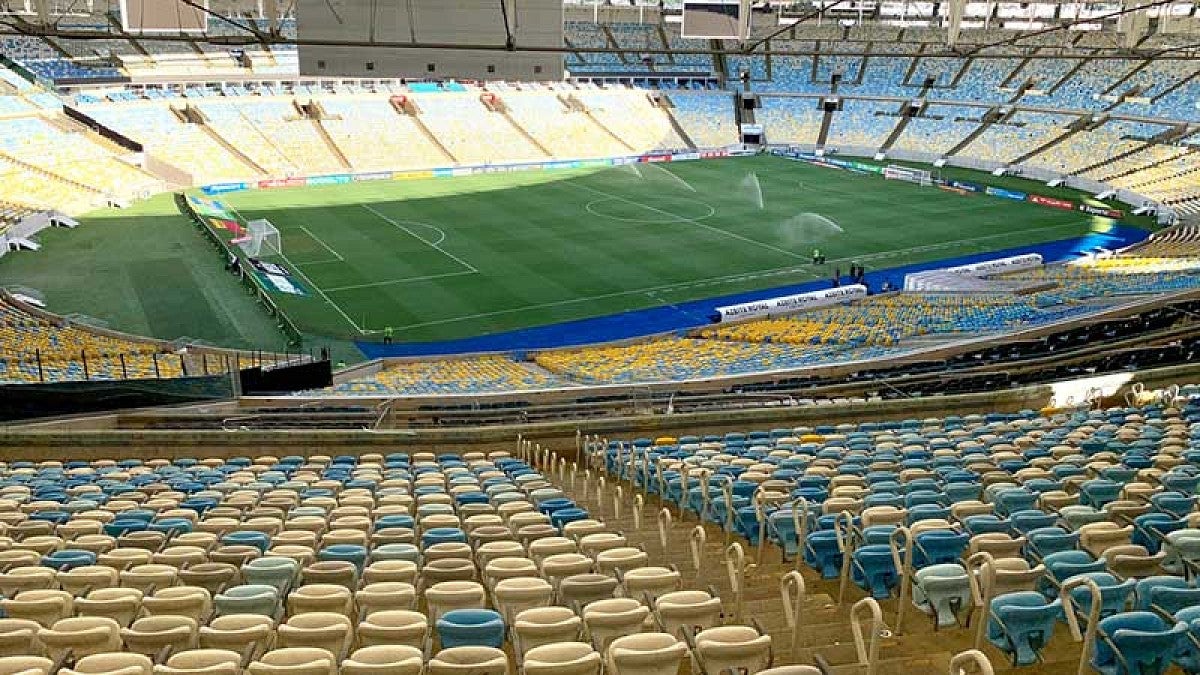The beginning of the end of sports as we know it happened the evening of March 11 in Oklahoma City.
The novel coronavirus was all over the news and U.S. cases had just surpassed 1,100, but daily life in the United States had yet to broadly go into lockdown and the sports world had yet to be interrupted. Fans were excited about the advent of spring sports: March Madness, opening day of Major League Baseball, the Masters golf tournament and more.
Then came an NBA game between the Utah Jazz and Oklahoma City Thunder. Just before the tip off, officials postponed the start for 30 minutes without explanation and then abruptly canceled the game.
Soon after, it emerged that a Jazz player had tested positive for COVID-19. That same evening, the NBA announced it was indefinitely suspending the rest of the season. Within days, other major sports leagues and organizations — MLB, NHL, PGA and NCAA — suspended play for the foreseeable future.
The NBA’s decision to suspend the season marked a turning point in this time of coronavirus, said Whitney Wagoner, director of the Warsaw Sports Marketing Center in the Lundquist College of Business.
“The world as we know it changed,” she said.
NBA Commissioner Adam Silver went farther than most people thought he needed to go, but his decision “helped define social leadership,” Wagoner said.
“Sports is a leader in moments like this,” she said. “Sports has always been on the front edge of social conversation, from Billie Jean King to Jesse Owens to Muhammad Ali and Vietnam and Jackie Robinson. Sports is on the leading edge. Society and culture often follow what sports says and does.”
The loss of sports may seem trivial when 2 million people have been sickened and 125,000 have died worldwide from COVID-19. But one need only visit the parking lot at Autzen Stadium on game day or crowd into Matthew Knight Arena for a sold-out women’s basketball game to see how much sports mean to people.
“Traditionally in times of crisis sports are a healing agent,” Wagoner said. “There are lots of examples of natural disasters and human-caused disasters where sport was a convener of hope. Now that’s lost. It’s hitting people hard that they don’t have that medicinal thing.”
Sports are where people feel safe, where they come together to bond and commiserate and celebrate, Wagoner said.
“Sports is the place we look to hold us together and for it to be absent now makes it very difficult.”
Aside from the societal costs of sports going dark, the economic costs are vast. The NCAA was set to distribute $600 million to conferences and colleges this spring, but slashed that number to $225 million. TV networks pay the NFL more than $5 billion a year for the right to broadcast games.
“I don’t think we understand the long tail of the economic impact,” Wagoner said.
No one yet knows when sports will return or what they will look like as the pandemic eases. Various ideas have been floated for resuming games, but nothing firm has been decided.
But industry officials are looking at how they can get sports back on TV as soon as possible, even without spectators, and “get some monetization back in the ecosystem,” she said.
“Audiences want that,” Wagoner said, “and that’s where the money comes from anyway.”
But even when sports come back, there is no guarantee fans will be rushing to watch games in crowded stadiums and arenas. And that’s why health and safety precautions may become part of the game-day experience: taking spectators’ temperatures and offering gloves and masks, Wagoner said.
Football is the 800-pound gorilla of American sports, and Wagoner said it’s too early to say if the game will take place uninterrupted this fall.
“What we do know for sure is that everyone is going to do everything they can to keep football on the calendar,” she said.
While the loss of spring sports stings, “it all pales in comparison to the money in American football,” she said. “That’s the golden goose.”
Closer to home, two major track and field events set to take place at the newly rebuilt Hayward Field — the 2020 U.S. Olympic Trials and the 2021 World Championships — have both been postponed for one year.
Wagoner said she remains bullish on track and field in Eugene.
“The stadium will get finished and those events will happen,” she said. “Those events become even more critical to our campus and to our local economy. They are going to be major engines of economic impact. Thanks goodness we have those global events to look forward to and to buoy our economic recovery.”
—By Tim Christie, University Communications


